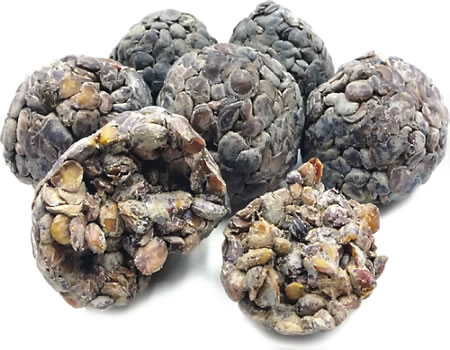
Why Locust Bean, Garri Can Reduce Nausea, Constipation In Pregnancy
- Bayo Adetu
- November 25, 2021
- Uncategorized
- 0 Comments
By Sade Oguntola
Many fermented foods contain probiotics which are live microorganisms or bacteria that provide health benefits to the human body. Probiotics are known as ‘good’ or ‘friendly’ bacteria for the gut with Lactobacillus and Bifidobacterium being the most well-known.
New research suggests that moderate intake of probiotic foods during pregnancy can reduce nausea, vomiting and constipation, thereby improving quality of life for pregnant women.
Nausea and vomiting affect about 85% of pregnant women. Pregnancy-associated nausea, constipation, stomach upset, bloating, fatigue, etc., have no apparent structural abnormality, so are referred to as functional gastrointestinal (GI) disorders.
Elevated oestrogen and progesterone during pregnancy change the composition and function of both the good and bad bacteria always present in the gut, so significantly affecting the functions of the gut or gastrointestinal tract.
The main friendly bacteria species in your gut are the Lactobacilli, which resides mainly in the small intestine, and the bifidobacteria, which lives in the colon. These bacteria are not always present in the gut, so they can be replaced regularly through probiotic foods. They only stay in the gut for up to 12 days at a time.
Some of these probiotic foods common in Nigeria are fermented cassava products like garri, fufu, abacha and akpu. There are also fermented foods in maize products like pap and millet products like kunu, burukutu and kunu-zaki, local condiment products like dawadawa, and Africa locust beans.
The team, from the University of California, USA, had analysed whether probiotic supplementation influenced the gut dysfunction and life quality within 24 hours through daily surveys and faecal analysis in 32 patients over a 16-day period. It was in the journal, Nutrients.
Participants entered the study without taking probiotics (Day 0) followed by taking probiotics (Probiotics 10, 2 capsules/day Nature’s Bounty, NY) for six days and off probiotics for two days. Then, the same cycle was repeated.
The capsules contained inulin (200 mg) and 10 probiotics including L. plantarum 299v, L. bulgaricus Lb-87, L. paracasei DSM 13434, L. plantarum DSM 15312, L. salivarius Ls-33, L. brevis Lbr-35, L. acidophilus La-14, B. lactis Bl-04, L. paracasei Lpc-37, and L. casei Lc-11 (10 billion live cultures at the time of manufacture).
The participants were asked to enter a daily survey to understand whether probiotic intake influenced GI function within 24 hours. The survey questions included daily nausea and vomiting times, as well as 17 questions that evaluated life quality. In addition, information regarding constipation and daily nausea hours was obtained for a subset of patients.











